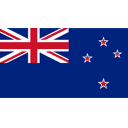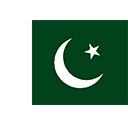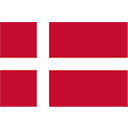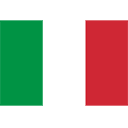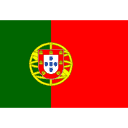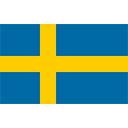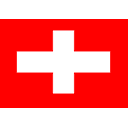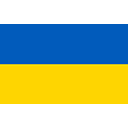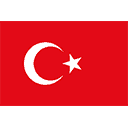Doing business with a Denmark PEO/EOR
The business culture in Denmark often leads companies to have flat management structures and place an emphasis on the value of working as a team to find a consensus when making decisions. Meetings are traditionally free-flowing and employees of all levels are encouraged to participate in the discussion.
Companies based in Denmark make a conscious effort to create a stable work-life balance by providing employees with flexible working hours. Danish employees have the reputation of being hard workers and can usually be counted on to deliver their work and meet deadlines on a consistent basis.
It’s important to note that nearly 3 out of every 4 workers in Denmark are members of a trade union, which can sometimes present challenges to foreign companies looking to expand into the country. This is an area where a Denmark PEO can provide value to expanding businesses:
Why Use a PEO in Denmark?
Employment law in Denmark utilizes collective bargaining agreements (CBAs)which regular the majority of the working conditions in Denmark. By partnering with an established PEO in Denmark, foreign companies are able to hand over certain responsibilities to the PEO and focus on the core functions of their business. These responsibilities can include HR and payroll management, recruitment, and more.
How to Hire in Denmark
The best practice for creating a strong employment contract in Denmark is to specify the terms of the employee’s compensation, benefits, and termination requirements in both Danish and English. Denmark law requires employers to provide employees with a written contract at the beginning of their employment.
Both the official offer letter and employment contract should state the salary and any additional compensation or benefits in Danish Krone currency.
It’s important to keep in mind that Denmark offers all of its residents comprehensive Universal Healthcare, which is paid for through both federal and local taxes. Some companies will provide private health insurance to their workers, which essentially allows the employee to skip the line and be seen by a medical professional right away.
As every culture presents different hiring challenges and opportunities, taking advantage of the recruitment channels with the highest potential is especially important for the process of hiring talented professionals in Denmark. This is where your company can likely benefit from working with a Denmark PEO that is already well-versed in the local regulations and possesses in-country connections.
To successfully hire in Denmark, it can also be valuable to partner with a recruitment agency to simplify and expedite the process of hiring talented professionals in the country. Sometimes Global PEO companies will own an in-house recruitment agency that can improve the process of recruiting candidates in Denmark. The benefits of partnering with a recruitment agency to enhance your hiring process include:
- Accessing local recruitment experts who are familiar with the Danish markets and the most effective hiring practices.
- Working with an organization that is designed to understand the specific goals of your business and that can create a recruitment search process that is designed to fulfill your exact needs.
- Taking advantage of the recruitment agency’s local legal expertise to ensure that your business is compliant with the local laws and regulations in regards to employment.
When you partner with a Denmark PEO that also offers recruitment coverage, your company is able to receive ongoing support that includes the hiring and onboarding management, HR and payroll services, and more valuable resources in addition to those provided in the initial recruitment phase.
Below we have listed our recommendations for the 3 Best Denmark PEOs and Employers of Record. These organizations all have outstanding reputations for being able to hire and manage talented professionals in Denmark as well as ensure full compliance with local employment regulations.
Best Denmark PEOs and Employers of Record
Horizons
Horizons is a company that has continued to see steady growth since its initial launch. The growing global expansion company provides a variety of integral services for their diverse client portfolio, including strategic advisement and management of key business openings.
Horizons Denmark PEO services can support recruitment, staffing, all HR functions, and much more, with all of their services being handled by local staff with expertise in the area. Language barriers, cultural nuances, and even the best locations for your offices are all managed with professionalism by their hand-picked staff.
Website: Horizons
Sky Executive
SkyExecutive is a recruitment agency and Professional Employer Organization (PEO) with its own local entity located in Denmark. With the ability to combine recruitment and day-to-day employment solutions for companies looking to expand overseas, Sky Executive provides clients looking to expand their operations into Denmark while providing a strong overall value and a single point of contact.
In addition to their suite of expansion services, Sky Executive is also known for its deep network of local consultants based in Denmark, with that level of local expertise being helpful for organizations looking for a smooth transition into their target market.
Website: Skyexecutive.global
Globalization Partners
With a worldwide client list and helpful expansion resources, GP is a simplified Denmark PEO solution for many mid-market companies. Their workforce support is available for over 170 countries, including Denmark. Globalization Partners provides insights and a centralized management style that is efficient for new companies who have relocated and are already working with local experts in Denmark.
Website: Globalization-partners.com
Request a Proposal
If you are looking to expand your business’s operations into Denmark, GlobalizationPedia can help match you with the PEO that best fits your company’s objectives at the strongest value both financially and operationally. Fill out the form below and we’ll use our extensive database of strategic partnerships to provide you with a full breakdown of the best potential PEO matches for your organization.
How useful was this post?
Click on a star to rate it!
Average rating 4.8 / 5. Vote count: 5
No votes so far! Be the first to rate this post.









